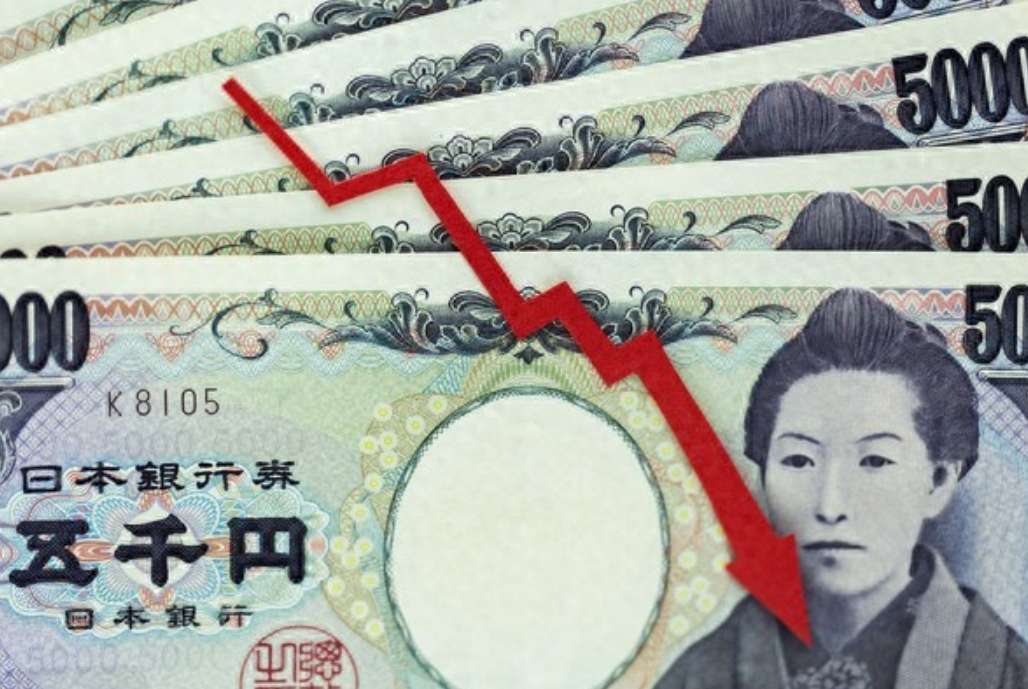Decoding the Yen's Rise: An Analytical Overview
Advertisements
The Japanese yen has recently marked a significant ascent against the US dollar, emerging as one of the best-performing currencies within the G10 group. The reasons underpinning this rise are multifaceted and reflect both domestic economic indicators and broader global trends.
To begin with, the latest economic data from Japan has surpassed market expectations, indicating a steady recovery in vitality. In the fourth quarter, Japan's GDP growth outstripped projections, invigorating market sentiments regarding a prospective interest rate hike by the Bank of Japan. The January corporate goods price index, which surged by 4.2%, further heightened anticipations for an early rate increase, creating an environment ripe for yen appreciation.
Moreover, there’s a growing consensus that the Bank of Japan may raise interest rates in the first half of 2025. The overnight index swaps suggest that there is over an 80% probability of a rate increase by the end of July, with a rise almost certain by the end of September. Generally, when the prospect of higher interest rates looms, the domestic currency tends to appreciate. This is primarily because elevated interest rates attract international investors seeking better returns, thus bolstering demand for yen-denominated assets.
Additionally, changes in the yield differential between US and Japanese government bonds have played a pivotal role in this narrative. For instance, the yield on Japan's 10-year government bonds has risen more than 20 basis points, reaching its highest level since 2011. In contrast, US Treasury yields have remained relatively stable, resulting in a widened differential that has significantly bolstered the yen's upward trajectory.

Compounding this situation is the recent performance of the US dollar, which has generally been lackluster, largely due to disappointing economic data and shifting market expectations around potential interest rate cuts by the Federal Reserve. Dismal readings on consumer spending and a slowdown in industrial activity have raised considerable concerns about the health of the US economy. Further, remarks from Fed Chair Jerome Powell indicating that there would be no rush to cut rates without solid evidence of declining inflation have capped potential gains for the dollar.
In the midst of these developments, global economic uncertainties have cast the yen as a traditional safe-haven asset. During times of market volatility, investors often gravitate towards currencies they perceive as more stable, lending additional support to the yen.
The implications of the yen's robust performance are extensive, affecting not only Japan’s economy but also global markets and international trade dynamics. Domestically, the strong yen poses both challenges and opportunities.
For Japanese exporters, the appreciation of the yen translates to higher prices for their goods overseas, which could compress profit margins for companies reliant on exports. This rising pressure could compel major corporations to diversify, perhaps seeking new growth avenues domestically that are less dependent on international demand. Conversely, as domestic consumption is buoyed by a stronger yen, there may be a shift towards greater reliance on internal markets, providing a boost to small and medium-sized enterprises in Japan.
Additionally, with a stronger yen reducing the costs of imported goods, domestic inflationary pressures could ease, offering a positive aspect for Japanese consumers who may benefit from lower prices on foreign products.
On a more global scale, the shifting capital flows resulting from the yen's strength are noteworthy. The influx of international capital into Japan's market has invariably enhanced both the performance of Japanese government bonds and equities. The yen's ascent will also have ripple effects on other currencies, potentially impacting exchange rates such as the Chinese yuan against the US dollar.
Furthermore, regarding international trade, the stronger yen may dampen Japan's competitiveness abroad, particularly against major trade partners like the US and the EU. However, this could also align with Japan’s long-term economic rebalancing goals and address some of the trade surplus concerns voiced by the United States.
For investors, the dynamics introduced by the yen’s appreciation necessitate careful consideration of their strategies. The possibility of reduced yen-carry trades may emerge, as investors pivot towards higher-yield assets, potentially signaling a shift in investment behaviors as they adapt to the changing landscape.
Looking into the future, the trajectory of the yen will likely hinge on a multitude of factors. A crucial element will be the pace at which the Bank of Japan adjusts its monetary policies. Should a rate hike materialize in May or July, the yen may continue its upward momentum. On the other hand, any delays in the Federal Reserve's rate cut plans could impose limitations on the yen's appreciation potential.
Moreover, broader economic factors—such as fluctuations in global trade relations, energy prices, and geopolitical tensions—will undoubtedly influence Japan's economic landscape and, by extension, the yen's exchange rate. The interplay of these elements underlines the complexity of currency markets and the necessity for investors to remain agile.
In summary, the yen's rise is the result of a confluence of factors, including robust economic data, rising interest rate expectations, changes in the yield differential with the US, and a weak dollar. As we look ahead, the yen’s performance will continue to be shaped by actions from both the Bank of Japan and the Federal Reserve, alongside prevailing global economic circumstances and market sentiments.